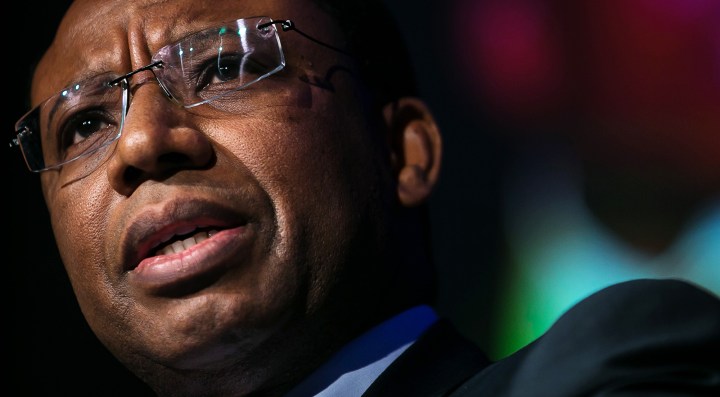FINANCIAL SYSTEM OP-ED
SA banks well prepared should the US regional banking crisis become systemic – former Reserve Bank deputy governor

The US regional banking crisis has developed a life of its own as midsize banks start to fall like dominoes. Still considered a sentiment contagion, there is a real risk it could become systemic. Fortunately, SA banks are in an even better position than they were in the last global financial crisis.
South Africa’s economic and financial scorecard may look dismal in many respects, but, as more US midsized banks hit the wall, we can take comfort in the fact that our banks are in even better shape than during the 2008 financial crisis.
This week another midsized US bank, PacWest Bancorp, saw its shares tank by 60% amid concerns that it was destined to follow First Republic Bank (FRB) into a forced sale. That undermines the statement this week by Federal Reserve Chair Jerome Powell that JPMorgan’s acquisition of FRB had “drawn a line” under a period of “severe stress” for regional lenders.
It’s not just PacWest Bancorp that has been under pressure; regional banking shares have also fallen sharply, and the large US banks have seen their share prices come off by about 3% since the FRB deal was announced.
Up to now, the banking fallout in the US has been seen as “sentiment contagion” rather than “true systemic contagion”. But concerns that it may become the latter have been increasing, and the risk that we may experience another financial crisis akin to the Global Financial Crisis (GFC) of 2008 haunts world financial markets.
In a recent PSG Think Big interview, Nedbank chair-designate and former SA Reserve Bank deputy governor Daniel Mminele indicated he doesn’t believe today’s financial liquidity strains will deteriorate into another global financial crisis. He said the current financial context is very different to 2008 because there are better equity and liquidity buffers in banks today. Regulatory refinements since the crisis, such as the Basel III framework, have also contributed to a more robust global banking sector.
Regulatory blind spots
However, he does believe US regulatory blind spots contributed to the recent banking crisis in the US.
“Regulatory provisions were watered down in the US, exempting banks like Silicon Valley Bank [SVB] from satisfying more stringent provisions.” He believes that, as the 16th-largest US bank, SVB should have been looked at differently given its operating model. SVB’s downfall was its liquidity mismatches and high level of concentration.
Fortunately, the picture looks very different in South Africa, and our banking sector should be less vulnerable to a banking weakness in the US. Our regulatory standards and world-class banking sector held us in good stead through the GFC in 2008 and the Covid pandemic. Leaders in the banking sector believe these will also shield us from any further stresses in the international financial markets brought on by the higher interest rate environment.
Mminele was confident SA’s financial sector could withstand a systemic deterioration in confidence in the global banking environment, notwithstanding the country’s recent greylisting.
He argued that SA banks were in a very good position even before the GFC because SA regulators resisted adopting the light-touch regulation that was put in place elsewhere in the world. Instead, the domestic regulatory and supervisory framework remained tight.
In the wake of the GFC, SA didn’t become complacent either. Mminele said regulators incorporated all the global regulatory initiatives to make the financial system safer.
South Africa migrated its financial services’ regulatory architecture to the Twin Peaks model. It has committed to implementing the Basel III framework, ensuring that the country’s banks are appropriately capitalised to better absorb losses and have built buffers during good times to tide them over challenging times, said Mminele.
The challenges
“Banks are in an even better position than they were in 2008, despite the tough operating environment over the last few years,” he said.
Challenges include SA’s exclusion from the World Government Bond Index, the downgrade in the country’s sovereign rating to sub-investment grade, the fallout from Covid and the greylisting.
Mminele doesn’t see the greylisting as an indictment on the South African banking industry, attributing it to the legislative and criminal justice systems’ failure to implement the required remedial actions.
Looking ahead, he believes South Africa must prioritise and move quickly to act on the outstanding requirements. Failure to resolve these issues promptly will result in the banking sector facing higher funding, implementation and correspondent banking costs.
“We mustn’t shy away from resolving what needs to be done, given the obvious benefits we would derive from not being viewed as a high-risk destination,” said Mminele.
As a high-risk destination, investors would be required to do enhanced due diligence and attach a higher risk premium to potential investments in a country that is no longer seen as a preferred investment destination.
Investment strategist Izak Odendaal of Old Mutual Multi-Managers agrees that South African banks are solid and well-regulated. From a financial stability perspective, he says, South Africa compares relatively well, given its large and liquid capital markets and a conservative and credible central bank overseeing the financial system.
“South Africa’s recent greylisting does not contradict this picture,” he adds.
Given that psychology, rather than rational thinking, has always posed the greatest risk to the banking sector, there is always a risk that another financial crisis will become a self-fulfilling prophecy. In this event, however, we can take comfort that South African banks have been well-regulated, have overcome the many challenges they have encountered since the GFC, and are as well prepared as they can be for potential pressures. DM/BM


















Comments - Please login in order to comment.